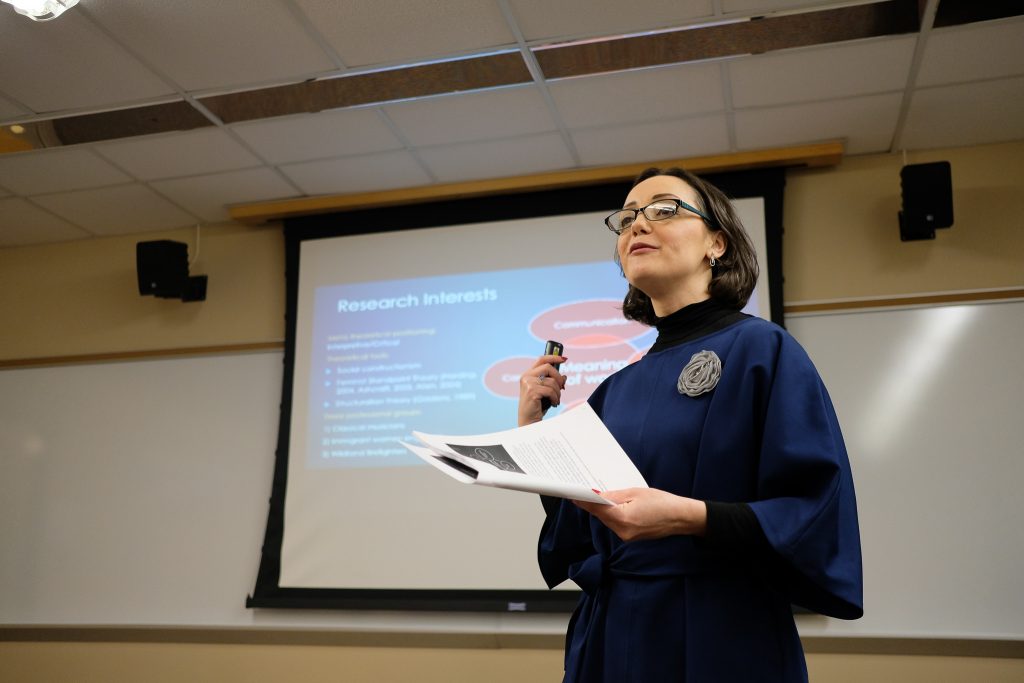
As part of an ongoing series, a Bradley professor spoke to a classroom of interested students about her body of research and the impacts of gender on organizations.
Associate Professor of Organizational Communication Elena Gabor spoke to Bradley students earlier this March about her research on group communication and its intersections with gender.
This presentation was part of the Gender Scholars Lecture series, which is organized by the Department of Women’s and Gender Studies. Gabor’s lecture, titled “To Hide or to Reveal the Body as Text,” centered around communication in organizations, and how organizations themselves are gendered.
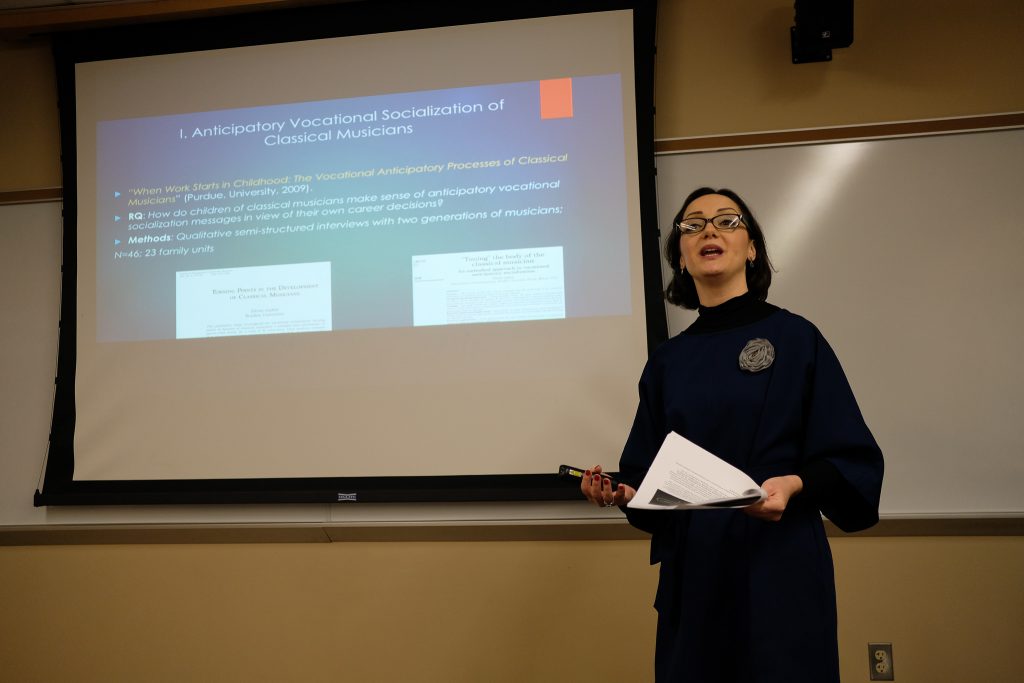
that gendered communication has on musicians specifically, while also sharing her own
experiences.
“We [as women] navigate our social and professional lives balancing our creativity and social and political constraints,” Gabor said. “I’ve been privileged to study that.”
Her lecture focused on two of her studies: Her dissertation, which analyzed classical music as a profession, and her more recent study on immigrant women engineers.
Gabor first discussed classical music as a profession both from the perspective of a child and challenges they can face.
She adds, “Childhood is worthless… but it’s worthless and anticipatory, but that is not the life for a child musician. It’s worth filled, is characterized by career phenomenon like actually mentoring others and building a professional mentor much earlier in their lives.”
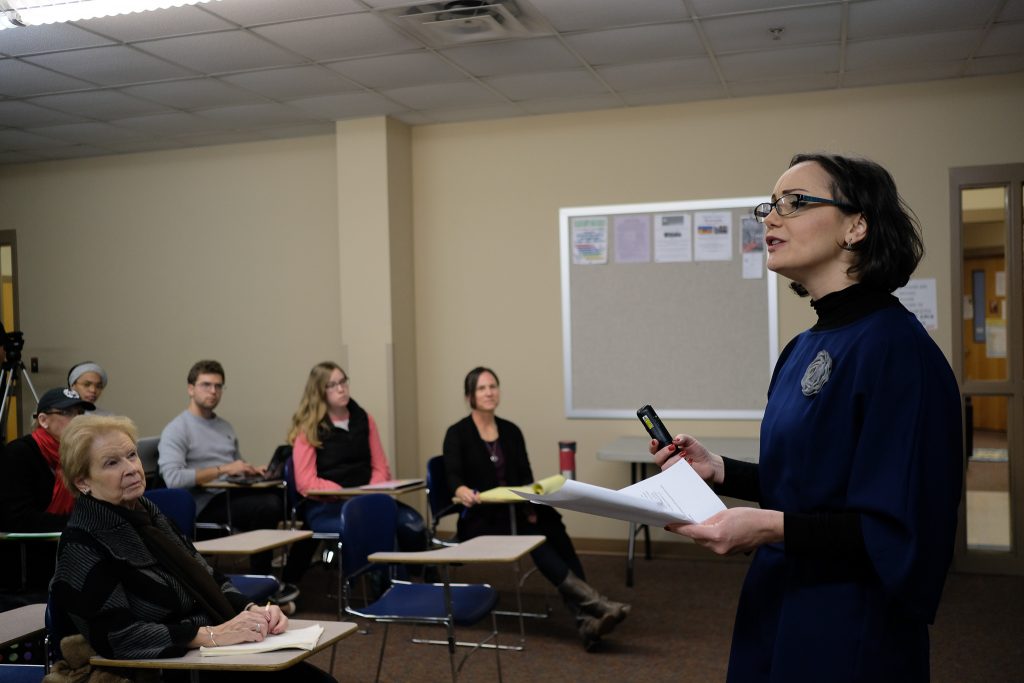
Romania.
Her research of her study also focused on how children of classical musicians make sense of socialization messages they receive in their families in view of their own career choices. Most pursed music simply because it was all they knew. She then points out the decision making to purse these professions between the sexes.
“The females in my study made anxiety filled decisions while the guys where black and white. They will filled with tangents of anxiety about making it in a male dominated profession since they were deemed to not have much of a voice nor identity.”
Gabor said the way to support women in the profession is “with our tickets and our downloads.”
Students of all disciplines could gain knowledge from the presentation.
Junior Sam Lechowicz attended Gabor’s lecture, as part of the capstone project for her minor in Women’s and Gender Studies.
“Dr. Gabor was very technical with her terms,” Lechowicz said with a laugh.
She is a psychology and English major, with her minor in Women’s and Gender Studies. The minor requires that students create an interdisciplinary project.
“No matter what you’re doing in Women and Gender Studies, you’re bringing in intersectionality, sociology, English, psychology, history,” Lechowicz said.
Lechowicz is collecting data at a psychology conference in April. She’s conducting a joint psychological study, using her data to examine the exclusion of individuals of sexual, gender, and ethnic minorities in psychological studies. The goal of her study is to propose a solution.
Lechowicz was one of many Women’s and Gender Studies students in attendance. As part of their capstone, individuals in the minor are required to attend all of the lectures.
Associate Professor and Director of the Women’s Studies Program Amy Scott organizes the Gender Lecture Series. Her students come from all majors: history, political science, nursing, education, and more.
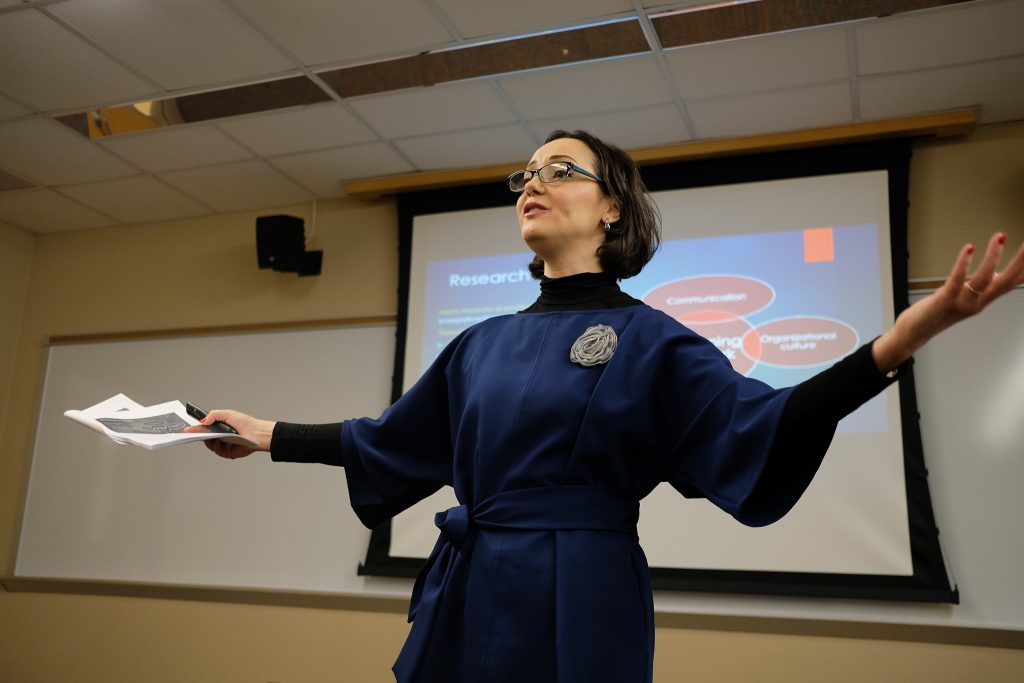
more disciplines. Gabor is well versed in both the gender studies and communication
disciplines.
The series is designed to be interdisciplinary, combining knowledge two or more disciplines. Scott stressed the importance of interdisciplinary scholarship.
“This is how speakers bridge theory and practice,” Amy Scott said.
Scott said the Gender Lecture Series provides a platform for scholars to share their research and make connections to gender.
“It’s a supportive audience of other scholars and students who are advocates,” Scott said.
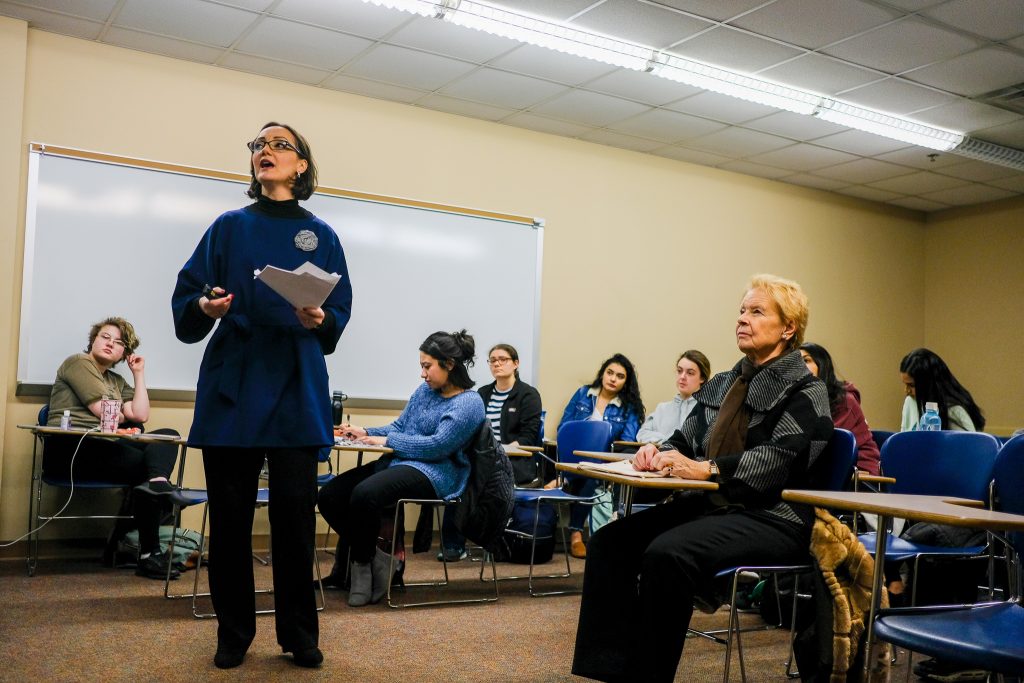
throughout the lecture.
The Gender Scholars Lecture series continues this spring. The next lecture, “Sizing up the American Woman” will be 4:00 p.m. April 2 in Bradley Hall 250. Contact alscott@mail.bradley.edu for more information or look at the series’ flyer for more information.
At the end of her presentation, Elena Gabor looked out at her audience and opened her arms wide.
“So that’s me,” Gabor said, smiling. “That’s my contribution.”